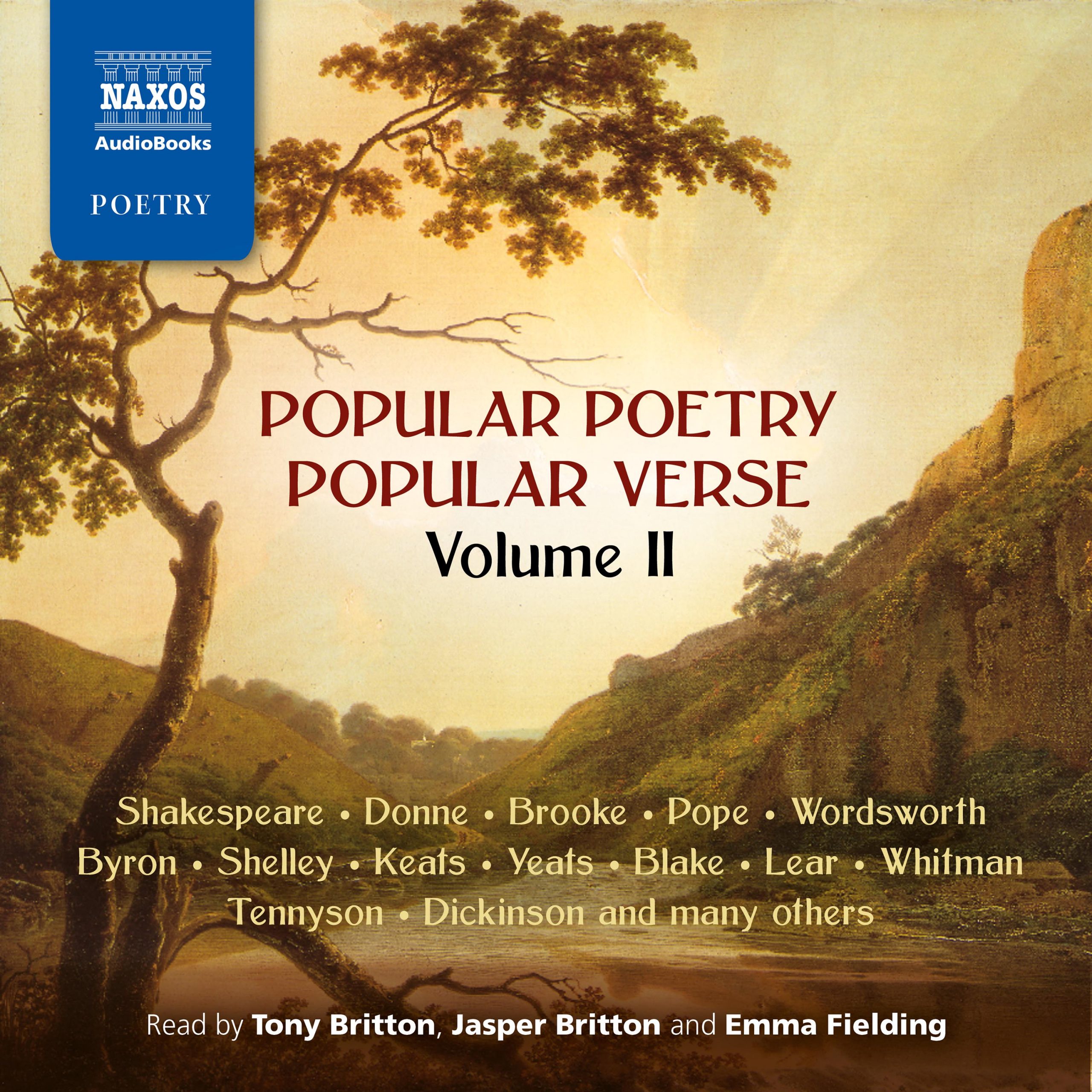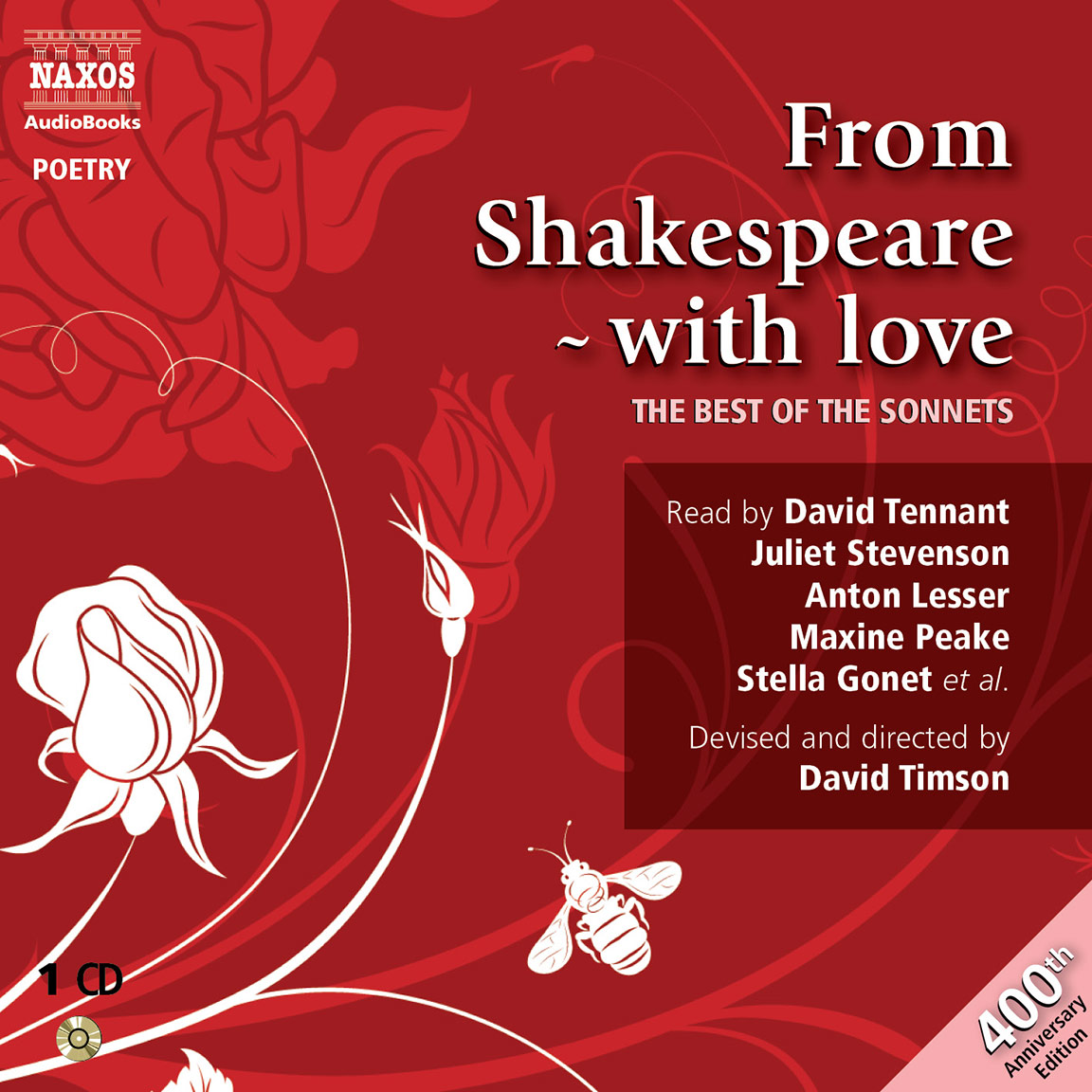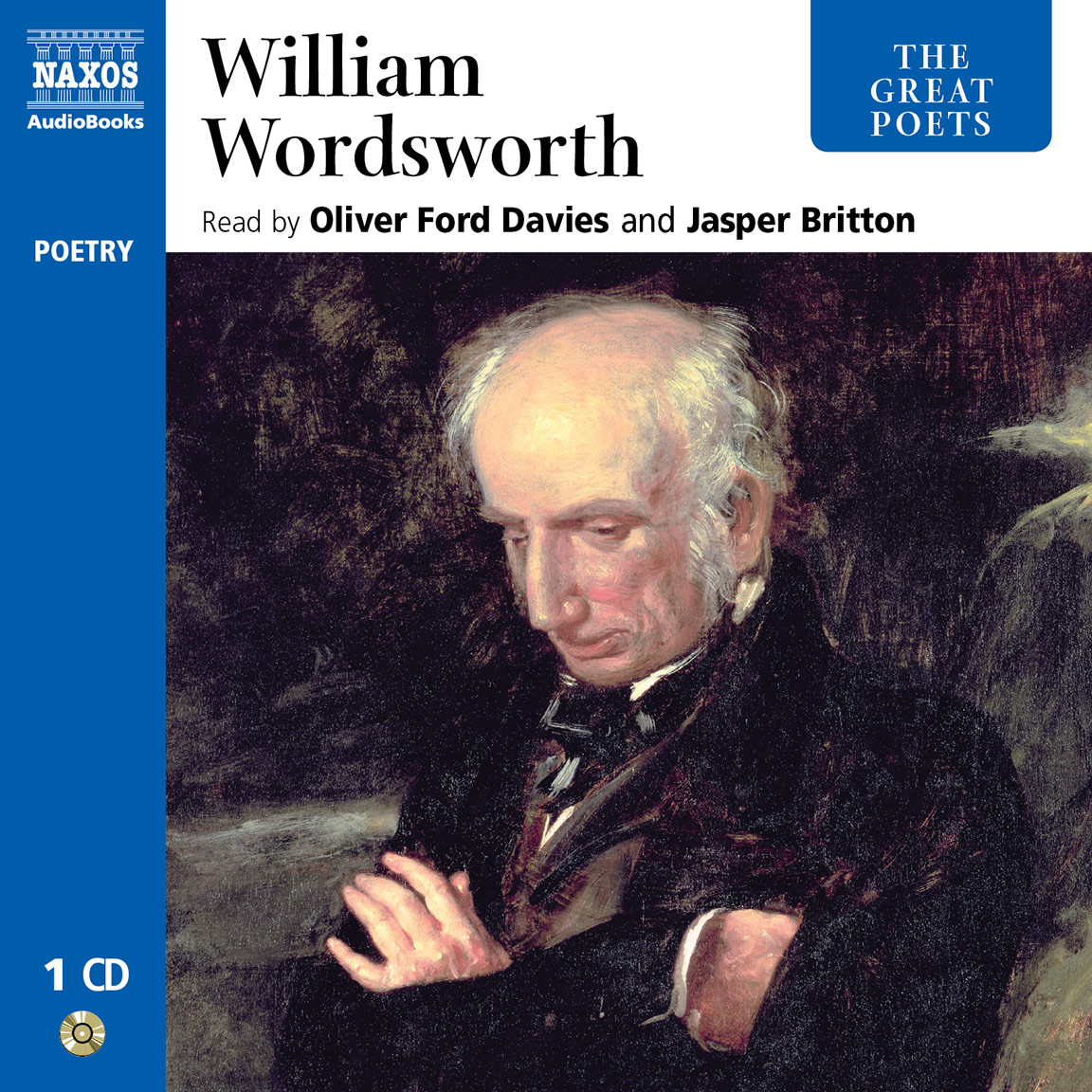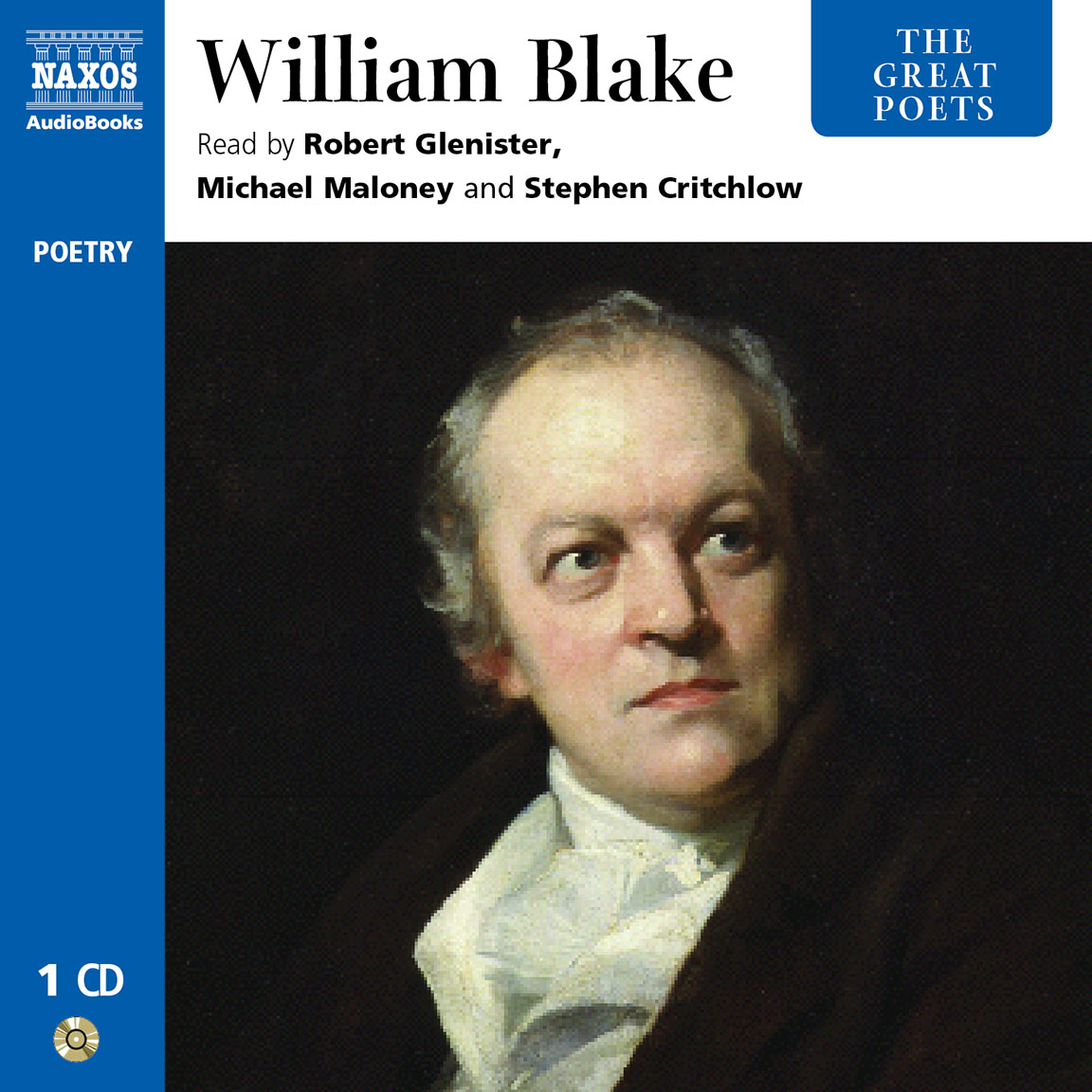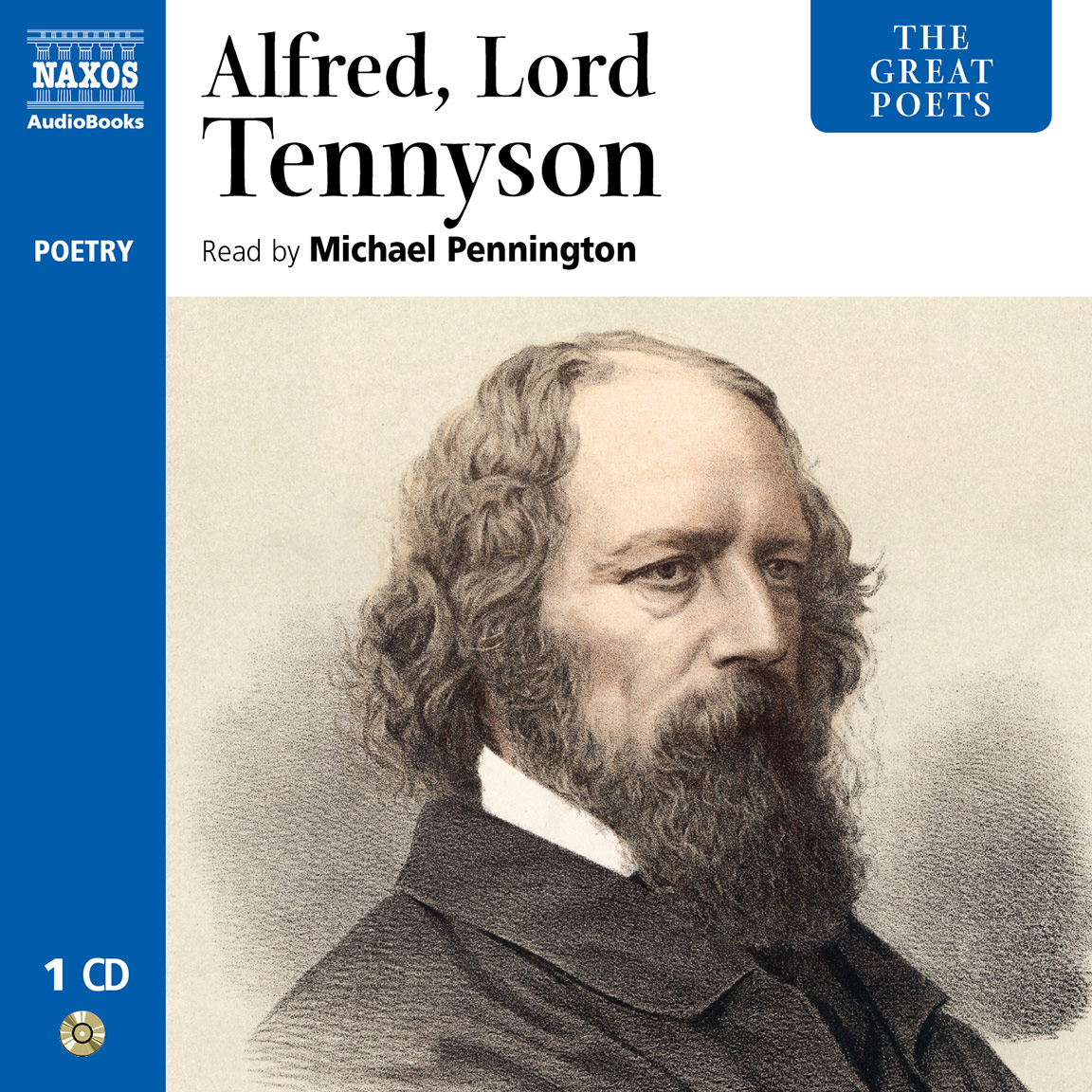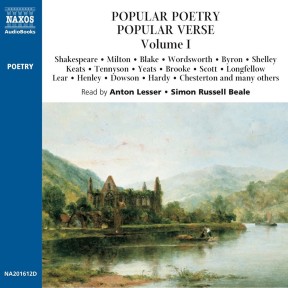
Audio Sample
William Shakespeare, John Milton, William Blake, William Wordsworth, Lord Byron & Percy Bysshe Shelley
Popular Poetry, Popular Verse – Volume I
Read by Anton Lesser & Simon Russell Beale
selections
With more than 80 of the most popular and loved poems in the English language, this collection is one of the most comprehensive anthologies of its kind available. It covers a remarkable range, from the striking vision of Blake and Shelley and the insights of Keats to lighter but equally memorable verse by Tennyson, Kipling, G.K. Chesterton and Edward Lear.
-
Running Time: 2 h 39 m
More product details
Digital ISBN: 978-1-84379-629-9 Cat. no.: NA201612 Download size: 38 MB BISAC: POE001000 Released: October 2000 -
Listen to this title at Audible.com↗Listen to this title at the Naxos Spoken Word Library↗
Due to copyright, this title is not currently available in your region.
You May Also Enjoy
Included in this title
- William Shakespeare
- Shall I compare thee to a summer’s day
- William Shakespeare
- When in the chronicle of wasted time
- William Shakespeare
- When in disgrace with Fortune and men’s eyes
- Sir Walter Raleigh
- A Lover’s Complaint
- Sir Walter Raleigh
- The author’s Epitaph, made by himself
- John Donne
- Death be not proud
- Andrew Marvell
- To his coy mistress
- John Milton
- On his blindness
- Robert Herrick
- To the Virgin
- Robert Herrick
- Delight in Disorder
- Richard Lovelace
- To Lucasta
- Thomas Gray
- An elegy written in a Country Church-Yard
- William Blake
- Tyger Tyger
- William Blake
- London
- Robert Burns
- My luv’s like a red red rose
- William Wordsworth
- I wandered lonely as a cloud
- William Wordsworth
- My heart leaps up when I behold
- William Wordsworth
- I travelled among unknown men
- William Wordsworth
- She dwelt among the untrodden ways
- William Wordsworth
- A Slumber did my spirit seal
- William Wordsworth
- The world is too much with us
- Lord Byron
- She walks in beauty
- Lord Byron
- So we’ll go no more a-roving
- Percy Bysshe Shelley
- Ozymandias
- John Keats
- Ode to a Nightingale
- Walter Savage Landor
- Envoi
- Robert Browning
- Home thoughs abroad
- Robert Browning
- Meeting at Night
- Robert Browning
- Parting at Morning
- Elizabeth Barrett Browning
- How do I love thee
- Lord Tennyson
- Ulysses
- Lord Tennyson
- Now sleeps the crimson petal
- Christina Rossetti
- When I am dead
- Matthew Arnold
- Dover Beach
- Gerard Manley Hopkins
- Pied Beauty
- Thomas Hardy
- The Darkling Thrush
- Rudyard Kipling
- Recessional
- William Butler Yeats
- He Wishes for the Cloths of Heaven
- William Butler Yeats
- When you are old and grey
- Edward Thomas
- Adlestrop
- A.E. Houseman
- From a Shropshire Lad
- Rupert Brooke
- Soldier
- Wilfred Owen
- Strange Meeting
- Henry King
- The Pessimist
- Ben Jonson
- Song To Celia
- William Cowper
- Verses
- Oliver Goldsmith
- When lovely woman stoops to folly
- William Wordsworth
- Westminster Bridge
- Sir Walter Scott
- Lochinvar
- Thomas Campbell
- Ye mariners of England
- Leigh Hunt
- Abou Ben Adhem
- Leigh Hunt
- Jenny Kissed Me
- Charles Wolfe
- The Burial of Sir John Moore after Corunna
- John Keats
- There Was A Naughty Boy
- Thomas Hood
- I remember I remember
- Henry Wadsworth Longfellow
- The Wreck of the Hesperus
- Alfred, Lord Tennyson
- The Charge of the Light Brigade
- Alfred, Lord Tennyson
- The Lady of Shalott
- Robert Browning
- Home thoughts, from the sea
- Robert Browning
- Pippa Passes
- William Johnson Cory
- Heraclitus
- Arthur William Edgar O’Shaughnessy
- Ode
- Edward Lear
- Jumblies
- Edward Lear
- The Owl and the Pussy Cat
- Lewis Carroll
- Father William
- Lewis Carroll
- The Walrus and the Carpenter
- Lewis Carroll
- Jabberwocky
- Henry Newbolt
- Vitae Lampada
- Henry Newbolt
- Drake’s Drum
- W.E. Henley
- Invictus
- Ernest Dowson
- Non sum qualis
- Ernest Dowson
- Vitae summa brevis
- Laurence Binyon
- Invocation to youth
- Thomas Hardy
- Wagtail and Baby
- Rudyard Kipling
- If
- Rudyard Kipling
- Mandalay
- Rudyard Kipling
- The Female of the Species
- G.K. Chesterton
- The Donkey
- G.K. Chesterton
- The Rolling English Road
- William H. Davies
- Leisure
- William Butler Yeats
- Down by the salley gardens
- W.S. Gilbert
- The Nightmare
Booklet Notes
Verse of some kind seems to be common to all historical cultures. It begins as a craft, a way of ordering knowledge and experience for easy memorising and maximum impact.
However, as it is practised for its own sake it becomes something more. The play of sound and rhythm with observation and narrative, of vocabulary and syntax with thought and feeling and metaphor, can develop such a grace and complexity and precision that we have to call it something different. It becomes poetry. And of all the languages of the world, English is, by common consent, the richest and most deeply worked mine for this most precious commodity.
However, not all the verse that sticks in the mind is twenty-two carat poetry. Some of our best loved versifiers – notably Victorian ones – indefatigably shovelled out irredeemably low-grade ore which they fashioned into inspiring, moralising or sentimental recitation pieces. These became, however, so highly valued that they have acquired the warm and glowing sheen of sheer familiarity. They constitute, in fact, some of our favourite verse. Children used to be made to learn them by heart, and somewhere in the mind, if not the heart, they remain. This is, after all, what verse is designed to do – to be remembered.
The result is that while our poetic tradition has its roomfuls of glass fronted display cabinets crammed with priceless heirlooms, it also has its lumber room. And sometimes the lumber room is where we want to be – turning up dusty, half-forgotten toys and treasures and nick-nacks, long-neglected but once lovingly displayed on a crowded mantelpiece.
For this collection we have dusted down a few of these old favourites from the lumber room, but at the same time we have had to recognise that some of them show their age, and don’t appear to their best advantage alongside the real collectors’ items, the pieces that are quite untouched by time. Further, the effect of time on some of the poetic brassware of the Victorian age is that it leaves on it quite a nice verdigris of irony. And while this irony is an essential part of our appreciation of these very heavy pieces, we don’t want it to spread and interfere with the finely balanced and delicately traced effects of the real poetry.
So instead of organising this anthology alphabetically or altogether chronologically, or even according to subject matter, we have taken the unfashionable step of dividing up our material according to the poetic ambition and achievement embodied in each piece. To the lumber room collection we have added lightweight verse from earlier ages, together with one or two classic examples of what is called ‘light verse’. This then leaves the poetry which really is in a class of its own – but also carried in our minds as half-remembered scraps – where it belongs: in a class of its own.
As with all such principles of organisation there are borderline cases which in themselves might seem to make a nonsense of the whole exercise, particularly perhaps with the Elizabethans. However, the great poets who kick off the ‘favourite verse’ collection – Marlowe, Raleigh and Shakespeare – are here in relaxed, expansive mood. By contrast, the otherwise unknown poet Chidiock Tichborne, whose ‘Elegy’ opens the batting for the ‘favourite poetry’ collection along with another poet who faced execution on the block, Thomas Wyatt, well illustrate Dr. Johnson’s maxim that death concentrates the mind wonderfully. Our hope is that these two collections, in their different ways, will remind the listener of at least some of the rewards and pleasures we have inherited in our great poetry and our splendid verse.
Notes by Duncan Steen
